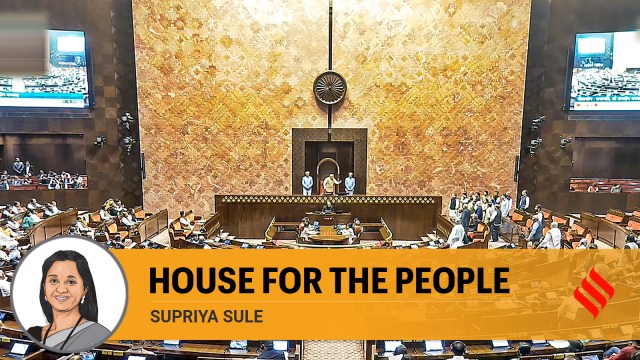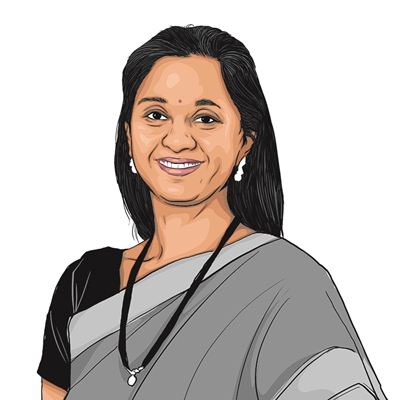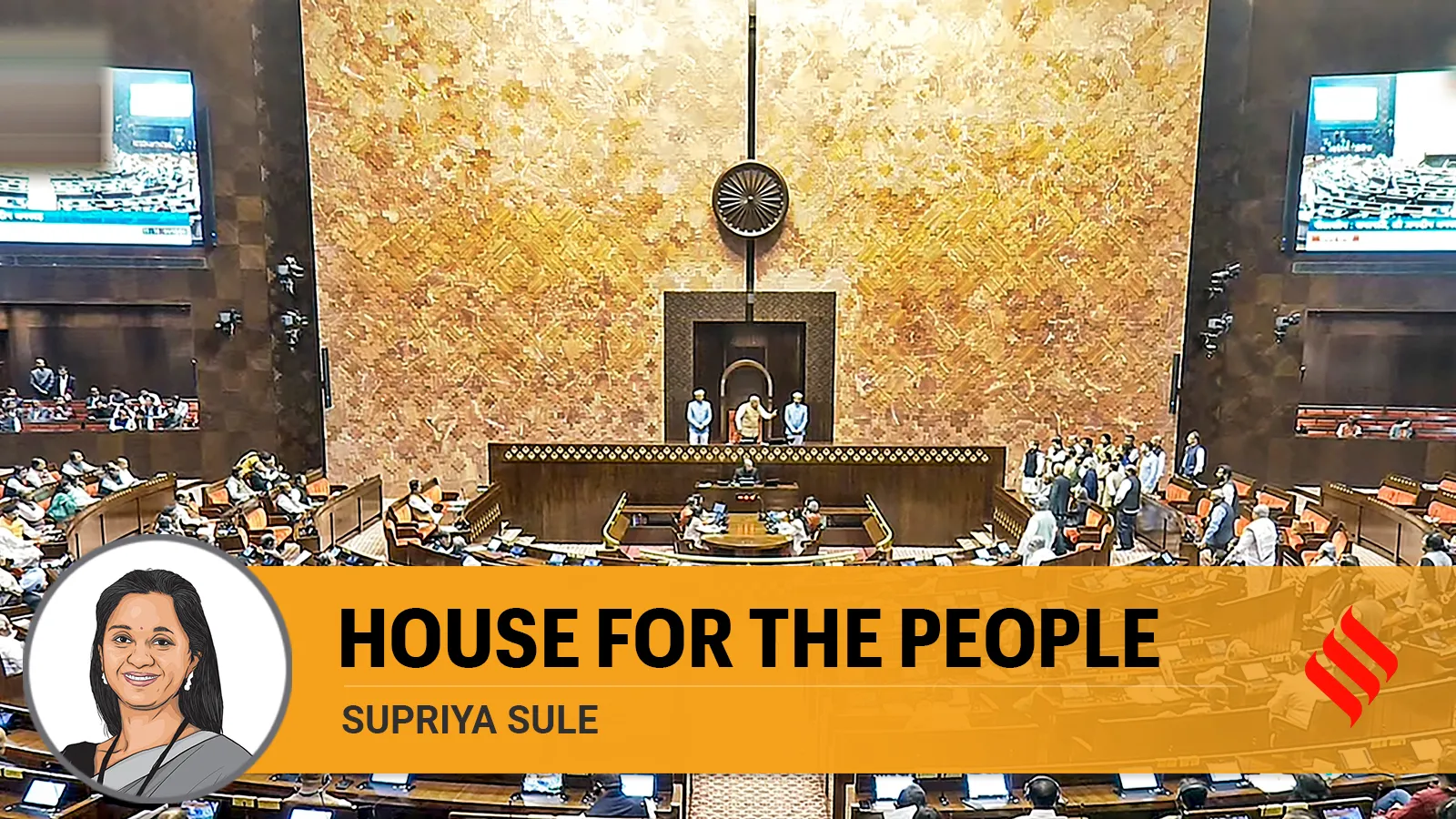

Dec 11, 2024 11:33 IST First published on: Dec 11, 2024 at 07:50 IST
The mandate of Parliament is a noble one — uphold democratic values, represent the interests of India’s citizens and ensure that governance aligns with the principles of our Constitution. Yet, too often, it has been reduced to an extension of election campaigns, a space for making short-term political and electoral gains, rather than a deliberative forum for addressing national challenges. For example, India’s farmers spent over a year protesting against the three farm laws passed by the government. Yet, their demands remained unfulfilled and their attempts at dialogue were thwarted until the assembly elections in Punjab drew close.
But Parliament hasn’t always functioned this way, which gives us hope that change is possible. From the Bhopal gas tragedy to the 26/11 attacks to Anna Hazare’s anti-corruption movement, Parliament has freely discussed a vast range of subjects, whether or not it was in the interest of the ruling government. Parliament also discussed the devastating 2001 Gujarat earthquake, and the then prime minister, the late Atal Bihari Vajpayee constituted the National Committee on Disaster Management, appointing Sharad Pawar as its Vice Chairman despite him belonging to the Opposition.
In this session too, External Affairs Minister S Jaishankar’s address to Parliament on developments in India’s relationship with China offered us a glimpse of Parliament’s true potential.
But if asking Parliament as a whole to prioritise critical analysis over being a ground for political mudslinging seems idealistic in our current politically charged climate, we need only turn to the mechanism of parliamentary committees. Committee proceedings are not public, so they allow MPs to focus on policymaking without constant political posturing. Referring bills to them must once again become the norm. The creation of a Joint Parliamentary Committee to examine the Waqf (Amendment) Bill, 2024 was a welcome step in this direction, and we are positive that the extension of its deadline is an indicator that the government has recognised the importance of such committees.
Another critical parliamentary device is adjournment motions, which allow the House to suspend its regular functioning to discuss matters of urgent public importance. Out of the thousands of adjournments filed during the 16th and 17th Lok Sabha, not even a handful were taken up. If the last Budget session and the first half of the Winter Session are any indication, this will continue to be the case.
When parliamentarians’ attempts to raise critical issues through official routes are derailed, it leads to disruption of the House. The entire first week of this session was lost to such attempts, which could have been avoided by listening to the Opposition earlier.
Parliament has been convened at an opportune moment, perfectly poised to discuss several critical developments, both foreign and domestic, that will have a profound impact on Indians’ lives and livelihoods. Following the election of Donald Trump to the US Presidency, the rupee hit an all-time low of 84.39 against the US dollar, and the threat of higher tariffs looms. Yet, an “America First” push that draws trade and investment away from China may indirectly benefit India’s trade relations with the US. Closer home, upheavals in Bangladesh and Pakistan have further potentially strained our position. These are subjects Parliament must deliberate upon to prepare India for upcoming contingencies.
Meanwhile, the fall of India’s GDP growth rate in the second quarter of 2024 to 5.4 per cent is a matter of grave concern, particularly as it was driven by industry, which was impacted by a slowdown in both domestic demand and exports. Some of India’s largest corporations have reported similarly disappointing earnings — yet another indicator of sluggish consumption, particularly among the urban middle class. Consistently high levels of inflation, particularly food inflation — hitting 10.9 per cent in October and averaging 8.0 per cent over the last year — combined with only a two per cent growth in inflation-adjusted wages continue to strain household budgets. The RBI’s refusal to cut the repo rate despite calls from both the Finance and Commerce Ministers to do so was possibly driven by legitimate anxieties about a further rise in inflation, but it leaves us with little hope of growth bouncing back strongly.
Yet, these issues have been virtually ignored by Parliament, even when the debate on the Banking Laws (Amendment) Bill provided the perfect opportunity to do so. Unfortunately, the Opposition was not allowed to go beyond its specific provisions, as if the banking sector is not inextricably linked to the overall health of the economy.
most read
An important concern we raised was that the curtailment of the term of the tenure of the directors of co-operative banks should be applied prospectively, to avoid disrupting the sector by depriving it of the wealth of experience of the current set of directors in one fell swoop. We are hopeful that the Finance Minister has taken the suggestion positively.
Questions regarding Parliament’s parampara and maryada — its dignity and legacy — have become increasingly central to India’s political debate over the past few years, particularly following the mass suspension of MPs last December. Yet, we must remember that the credibility of Parliament as an institution hinges not merely on its members’ adherence to parliamentary norms but on its ability to sincerely represent the people who have elected it and work for their progress, independently of political expediency. If it comes to be perceived as a tool for electioneering, rather than durable, evidence-based policymaking, Indians will inevitably lose faith that their representatives are truly working in their best interests.
The writer is Member of Parliament & National Working President, NCP (Sharadchandra Pawar)


